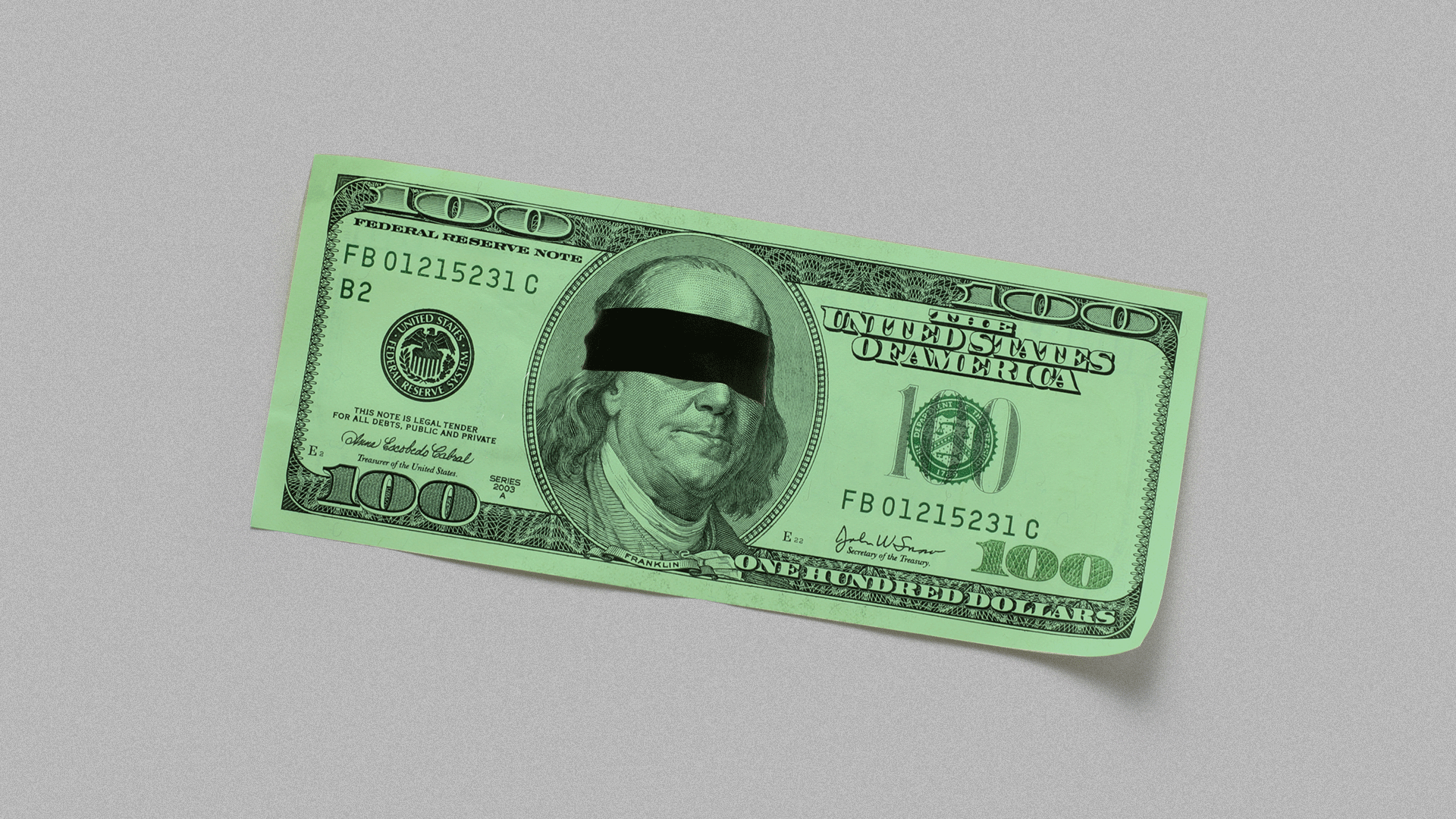The flying blind economy
Add Axios as your preferred source to
see more of our stories on Google.

Illustration: Aïda Amer/Axios
CEOs, central bankers and money managers say they're operating in a world where they have no idea what's coming next, leaving them with few options but to prepare for the worst.
Why it matters: Uncertainty about a handful of unprecedented phenomena — like the grinding trade war with China, the peripatetic Brexit debate, and President Trump's government-by-tweet — is inflicting pain on the global economy.
- The uncertainty is showing up in hard data: The lack of corporate dollars being spent on factories, software or new equipment dragged down economic growth in the 2nd quarter. Business investment fell 0.6% — the first drop in 3 years.
Driving the news: Everyone is stymied over how to make financial or investment plans for the future, because the rules keep changing by the day. Corporate America is still raking in eye-popping profits, but it is also in a decision-making tailspin.
- Businesses don't know what to do about their operations in China, how to price their products and source their materials. And they don't know how consumers will react to higher prices during the all-important holiday season.
- "There is no precedent for this, and there are a lot of moving pieces," Corie Barry, Best Buy's new CEO, said last week as the company lowered its sales forecast.
- The head of Target, Brian Cornell, told analysts: "As long as the trade situation remains fluid, it will present an additional layer of uncertainty and complexity as we plan our business.”
Some companies say they're in limbo, unsure whether it's worth moving supply chains out of China.
- "As soon as ... we start to move, he’s going to put a target on somebody else’s back, and where do we go from there?” Jay Foreman, CEO of toymaker Basic Fun, told CNBC, referring to Trump.
Powerful central bankers are also throwing up their hands.
- There are “no recent precedents to guide any policy response to the current situation," Fed Chair Jerome Powell said in a speech last month, in reference to the trade war.
- "If you do an online search about recent economic developments, the word 'uncertainty' will come up a lot," John C. Williams, head of the New York Fed, said in a speech on Wednesday. "It’s true that uncertainty, both at home and abroad, is playing an important role in my thinking about the economic outlook and monetary policy."
- Despite relentless lobbying by Trump, there are doubts that central banks' primary policy tool — adjusting interest rates — will be enough to stave off a slowdown caused by the tariff tit-for-tat with China and political disarray in the U.K.
Main Street is grappling with a lot of questions, too, mostly about how to absorb the impact of tariffs. How much should mom-and-pop companies raise retail prices? Should they seek out different suppliers? Are they going to have enough to pay employees?
- Small business owners told the WSJ that uncertainty "about if and when the duties, how large they will be and how long they will remain in effect ... is making it hard to plan and is hurting their businesses."
- "It’s overwhelming. It’s exhausting. It’s demoralizing,” Susan White Morrissey, founder of a cashmere brand called White + Warren, told the WSJ.
Consumers, too, are in a bind.
- Nobody knows what to do with their money in an environment where the stock market is a roller coaster — generally doing well, but subject to wild swings pegged partly to Trump's tweets — and savings accounts pay lower interest rates due to the Federal Reserve rate cut.
- While conventional advice to retail investors is to sit tight amid the uncertainty, some people are gravitating to perceived safe havens like gold.
Fund managers for both individual and institutional investors are trying to roll with the punches.
- “You have to deal with a president who is constantly making tweets that have effects on the market,” Marc Lasry, head of the hedge fund Avenue Capital Group, told the WSJ, adding: “There’s a perception that everything is fine, and then that perception is shattered when the president announces he’s going to change the tariffs.”
The bottom line: The trade war and Brexit — 2 fights that were anticipated to have been in the rear view mirror by now — have gotten even messier and uglier in recent days, meaning that the "u" word — uncertainty — will continue to be ubiquitous.
- "What's happening globally is a confidence effect, business confidence not just in the U.S. and China but all across those supply chains more broadly," Mark Carney, the head of the U.K.'s central bank, told CNBC. "Those effects are at least as material as the direct trade effects."
